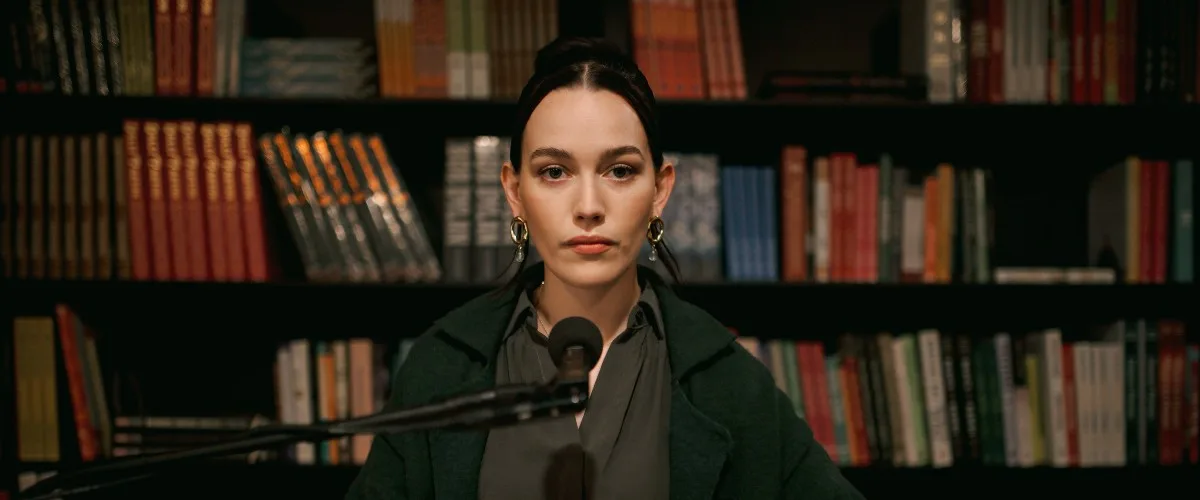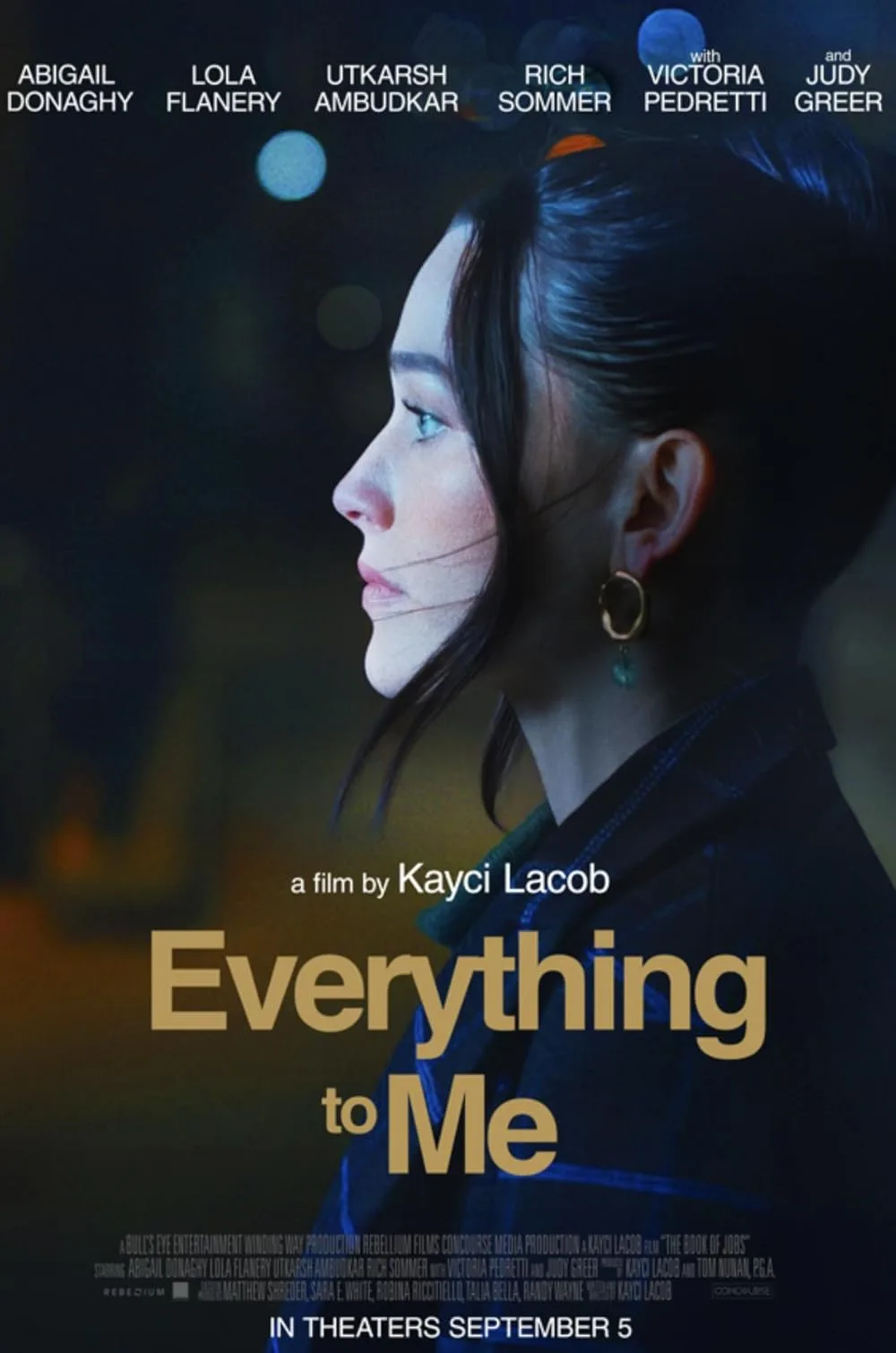It’s easy to forget, in an age where tech oligarchs rule our lives, our selves, and in some cases our government with an iron fist and a dystopian vision of the future, that there was a time we saw them as pioneers. That’s certainly the case with Claudia Lerner, the young protagonist of Kayci Lacob’s indie drama “Everything to Me,” who, as we learn in the opening minutes, spent the better part of her youth worshipping former Apple CEO Steve Jobs. It’s easy to see why; in his prime, and at the height of Apple’s powers, he was styled as a visionary, a genius in a black turtleneck who innovated products and inspired people at the same time. As such, Lacob styles a coming-of-age story around that worship and all its pitfalls, a bildungsroman of a young woman so desperate to excel that she loses herself in the process. It’s an intriguing idea, “The Edge of Seventeen” by way of “The Social Network”—even as its autobiographical nature teeters into after-school special.
Its opening minutes already show us the end point of Claudia’s ambition; as an adult (played by “Haunting of Hill House” standout Victoria Peretti), she shrugs off a joke about Apple Stores as she walks into a little bookstore to give a reading of her memoir. From there, we flit back to her childhood and chart her journey forward, complete with chapter headings styled in the iconic “Think Different” Apple font (there’s a reason the film, like Claudia’s book, was previously titled “The Book of Jobs”).
Having moved to the Bay Area with her parents (played by Rich Sommer and Judy Greer) because of her father’s Silicon Valley job, young Claudia (played by Eliza Donaghy as a tween and Abigail Donaghy as a teen) grows up around everything Steve Jobs: The period-accurate production design allows our eyes, like hers, to wander over the pleasing curves and seamless lines of all those vintage iMacs, first-generation iPods, and more. (It’s a wonder they couldn’t license Jet’s “Are You Gonna Be My Girl” just to hammer home the period specificity of Apple’s marketing.) She sees Jobs as a figure to emulate, calling him a “messiah” and even muttering to herself, “What Would Steve Jobs Do?” at about everything from difficulties in school to getting her first period. The biblical allusion in her book’s title seems apt.
But of course, like so many American children in that era, crisis befalls her; Lacob reminds us of the distant horror of watching 9/11 happen in real time on your television, or finding out your parents are getting divorced right after you saw “Monsters Inc.” for the first time. With all of those myriad structures literally and figuratively crumbling around her, it’s no wonder she turns to the myth of Jobs for comfort. It’s a challenging upbringing, even through all of the economic privilege being a tech-bro’s daughter provides, especially as Claudia’s mom gets cancer. (Greer, for her part, does sensitive, nuanced work with very sparse screentime, as does Sommer, who juggles the competing sympathies of negligent dad and the kind of ambitious dreamer Claudia doesn’t want to recognize she is.)
Simply put, she’s an enormous, hormonal ball of insecurities, and she’s decided to steamroll those by transforming herself into the type of Type-A tech hopeful that, if she’s not careful, would make her the next Elizabeth Holmes. It’s the kind of single-mindedness that those around her find first endearing, then grating: her childhood bestie Lucy (Lola Flanery as a teen), and her inspirational high school teacher Mr. Shine (Utkarsh Ambudkar) both try to get her to let her hair down and enjoy her youth, but she will have none of it. To give her life meaning, she must succeed at all costs.
While there’s a lot to like about “Everything to Me” (Abigail Donaghy’s performance, in particular), Lacob’s heart-on-sleeve script and uncertain direction often leave the whole thing feeling a bit scattered. The episodic structure of Claudia’s journey leaves little room to imbue her quirks and insecurities with much weight, as she flits from one milestone to the next before we, or she, have a chance to absorb it. The last half hour, in particular, relies on more than a few mawkish twists and turns that tip their hand into melodrama in unwelcome ways; important people in Claudia’s life may up and die offscreen, and we’re left with little time to register their passing before it’s on to the next thing. What’s more, the warning signs of Claudia’s single-minded pursuit of, for lack of a better term, Jobsism come too late and land with a thud (see: the late-film addition of a cute boy who, like, doesn’t even believe in cell phones to burst her Jobs balloon one day at a coffee shop).
“Why can’t you just be you?” someone asks Claudia late in “Everything to Me,” and that does seem like the simplistic sentiment at the core of this teen drama. Lacob has said in interviews that this story is autobiographical, so it is not my place to say how much or little dramatic license has been taken to retell her story on screen. But in its current version, “Everything to Me” feels like an admirable, if flawed, attempt to filter the universal anxieties of discovering yourself and finding your purpose in adolescence through the eye-catching nostalgia of 2000s Silicon Valley consumerism. Problem is, there’s got to be more here than the same coming-of-age story in sleeker, more personalized packaging. One wants the creatives here to, to borrow a page from our old boy Steve, think different.




















